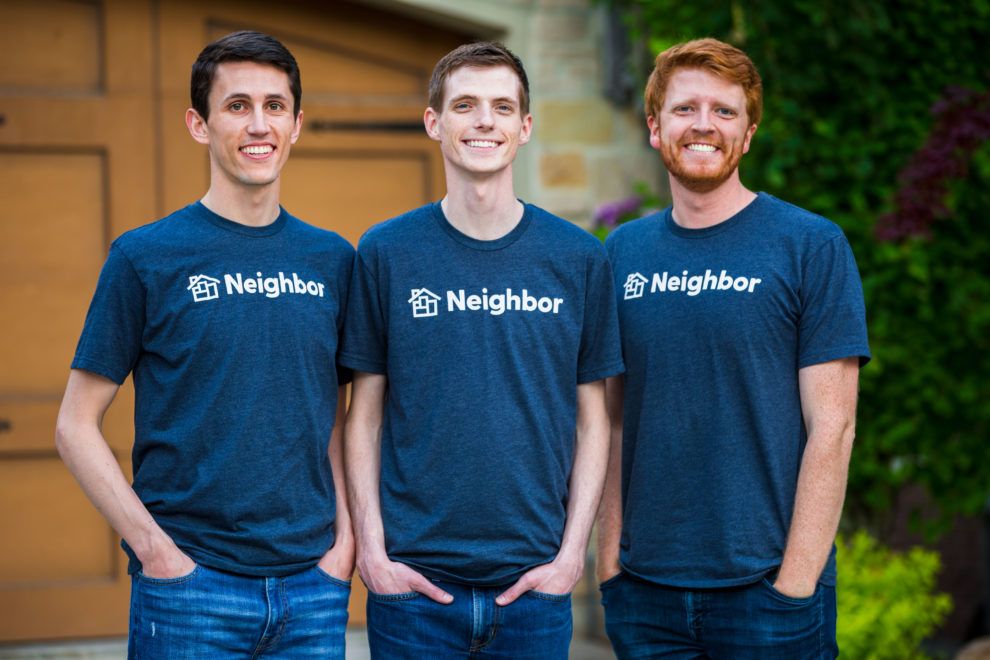Episode Summary
Joseph Woodbury and his two co-founders are a case study in how to be strategic about fundraising. They launched their company, Neighbor, an online peer-to-peer storage marketplace, after noticing how challenging it was to find an affordable local storage option.
To raise some pre-seed funding, they entered as many local business competitions as they could. In addition to winning $35,000, these competitions helped them land meetings with several venture capitalists. These conversations became the impetus for their seed round.
Each time the three co-founders raised a round, they were incredibly thoughtful about how they spent it. They didn’t spend any seed funding on marketing; instead, they invested in a top-notch engineering team that could build a premier product.
They only attempted raising a Series A — which they planned to dedicate to building a strong marketing and growth organization — once they had a tried and true playbook for expanding into new markets. They wanted to ensure they spent their capital as efficiently as possible.
In this episode, Joseph describes how Neighbor has raised $13 million, which includes a $10 million Series A led by Andreessen Horowitz.
How He Raised It
💰 Who: Joseph Woodbury
💰 Company: Neighbor.com
💰 Where to find him: Twitter | LinkedIn
💰 Money quote: “We were like, ‘Oh, we’ve made it. We could run a business on $35,000 forever.’ Of course, that [money] goes pretty quickly, especially as you start to experiment with more scalable methods to grow the business. You can only do door knocking and other growth hacking tactics for so long.”
💰 Noteworthy: At the beginning, Neighbor didn’t dedicate any dollars to marketing. They waited until their product was in a really great place and they were receiving NPS scores above 70.
Capital Gains
[6:00] Origin story 👉 One of Neighbor’s co-founders was looking for a storage unit, but the traditional options were too expensive and far away. So, he stored his stuff in a friend’s garage. It created such peace of mind that he wondered why others weren’t doing the same thing.
[7:29] Take life-changing chances 👉 All three co-founders had secured full-time jobs for after college graduation, but they turned them down in order to work on Neighbor full-time.
[10:08] The make-it-or-break-it factor? The people 👉 It was impossible to tell how the business would do in the early days. But Joseph knew he wanted to work with people like his co-founders, and that made him confident about his decision.
[11:11] Become known in the local business scene 👉 The first money Neighbor raised was from local business competitions, in which they won a total of $35,000.
[15:12] Don’t reinvent the entire wheel 👉 Because they were building a marketplace, they studied the stories of accomplished marketplaces like Airbnb, Doordash, and Uber, taking pages from their playbooks, learning from their mistakes, and figuring out how to be more efficient.
[17:47] Spend wisely 👉 The Neighbor team was quite disciplined about what they did with their seed round, choosing to invest in engineering instead of marketing.
[19:00] Perfect your strategy, then raise 👉 They only started raising a Series A once they figured out how to successfully launch a new market. This way, they could be smarter about how they spent each dollar.
[22:06] Be flexible and adapt quickly 👉 While waiting in line to board his flight back to Utah, Andreessen Horowitz called Joseph and asked him to come back to their office. He left the airport immediately, without hesitation.
[30:42] Don’t let your board go to waste 👉 Neighbor asked their board to meet every six weeks. They brought on each partner for a reason and wanted to consult with them more frequently than usual. Startups move quickly and there’s always something important to discuss.
Top quotes from the episode:
“I knew that I wanted to work with people like my co-founders Preston and Colton — just super solid, high-integrity people. So that was an easy decision for me. I could go to Bain and maybe find an opportunity to work with good people afterward or just work with good people now.”
“Those people at Andreessen, they’re workhorses. I was getting texts and emails at 2 a.m., 3 a.m., asking me for information. Because they were moving quickly. They knew they needed to move quickly, and that’s how they operate. That’s how they win deals.”
“There’s been plenty of hard work involved in building a business, and stuff that we did to make it successful. There’s also been a lot of hope and prayer involved and places where we got lucky. That’s just going to be a part of it as well.”


